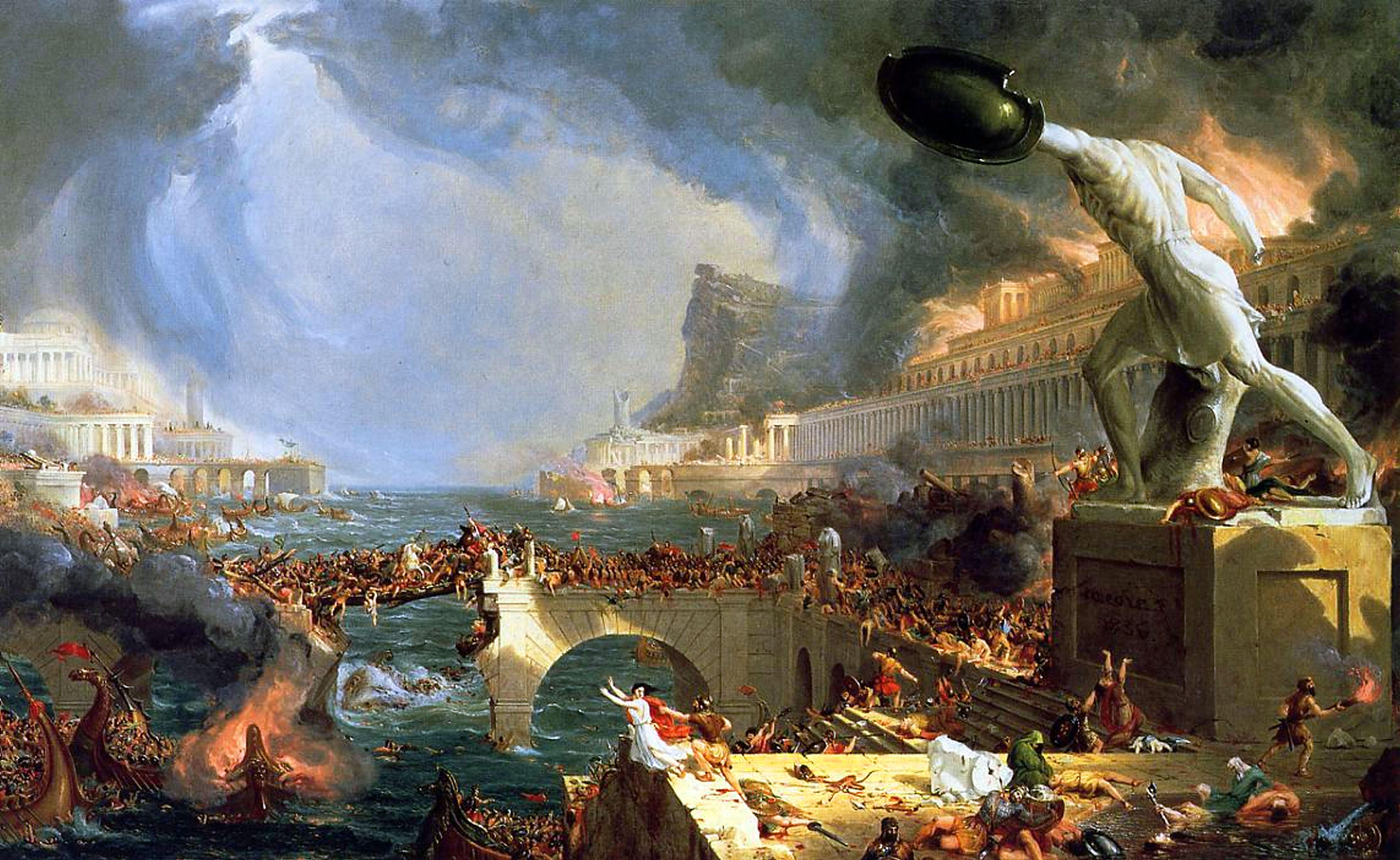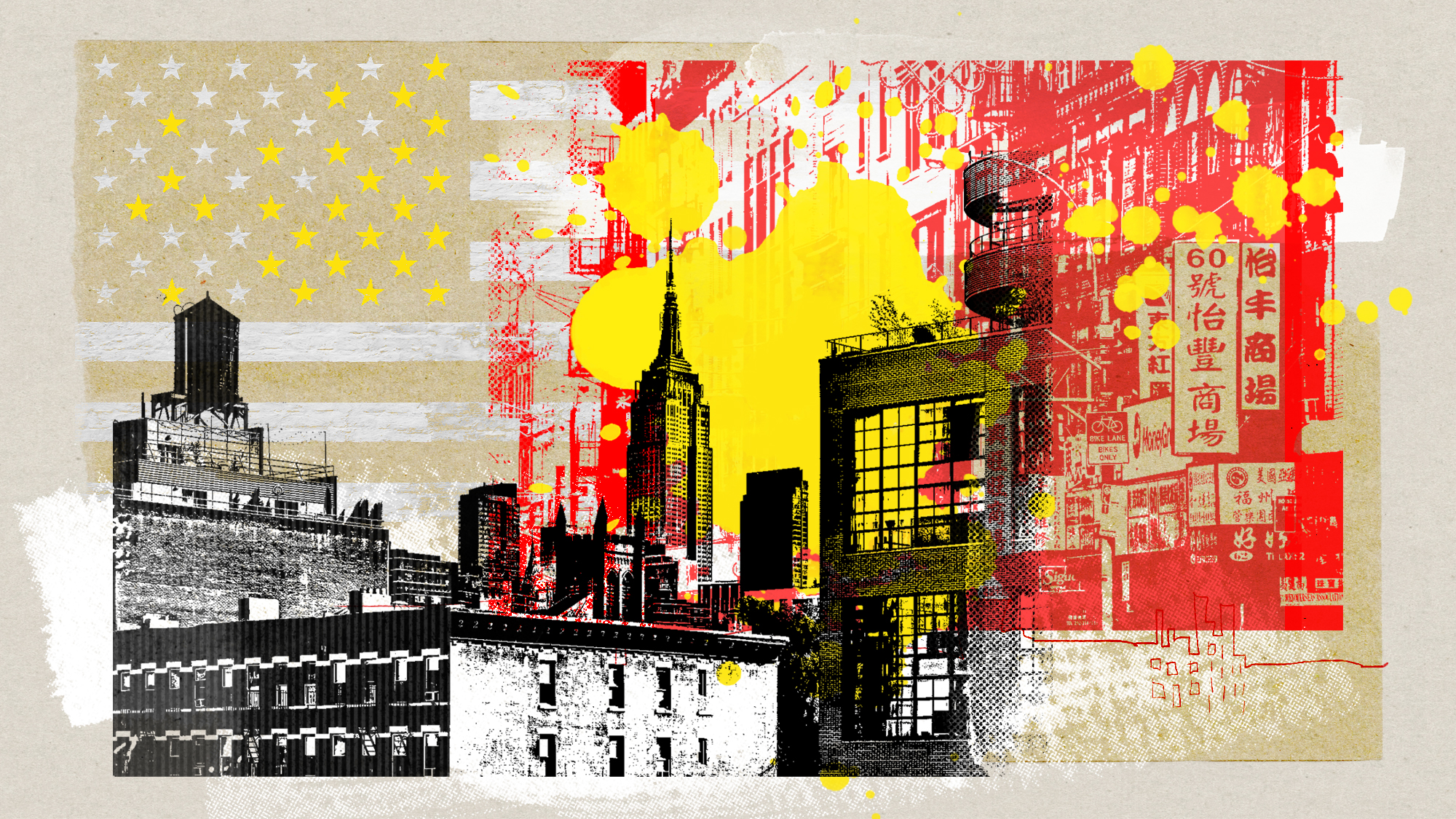The Western paradox
Nothing is more Western than considering it morally offensive to defend the West


President Trump is singularly ill-suited to champion Western civilization's greatest religious, moral, cultural, political, philosophic, and scientific achievements. Rather than exemplifying the splendors of the West, the man epitomizes Western decadence in one of its more grotesque contemporary forms.
But most critics of Trump's speech in Warsaw last week did not focus their ire on the messenger. Instead, they took issue with the message: How dare anyone in a position of public authority call on the West to defend itself against those who wish it harm! It would have been one thing to identify the West with universalistic-cosmopolitan principles of liberal democracy that are open to all and to which all people on the planet can aspire. But Trump meant something else: a place on a map, with an inside and an outside, with specific languages, achievements, and a common history. That's a tribe, and defending the West in that exclusivist sense is unacceptable in the 21st century by anyone who isn't a racist or a quasi-fascist adherent of alt-right ideology.
The strange thing about this critique of the idea of "the West" is that it is itself an expression of a distinctively Western outlook. The West is a civilization that has come over the past century to identify the achievement of its highest ideals with the negation of its own distinctiveness. And that very tendency is itself an expression (in secularized and radicalized form) of a very Western idea that first arose with Christianity — the religion (in its Roman Catholic and Protestant forms) with which the West has been identified for the better part of the past 2,000 years.
The Week
Escape your echo chamber. Get the facts behind the news, plus analysis from multiple perspectives.

Sign up for The Week's Free Newsletters
From our morning news briefing to a weekly Good News Newsletter, get the best of The Week delivered directly to your inbox.
From our morning news briefing to a weekly Good News Newsletter, get the best of The Week delivered directly to your inbox.
It was Christianity that first introduced into the Western imagination the profoundly paradoxical idea that an abject defeat could be interpreted as a great triumph. Jesus Christ was the king of kings, the redeemer and savior of humanity, but he was crucified, put to death by the temporal authority of Rome. How was it possible? Shouldn't he have led a rebellion of the downtrodden to overthrow the established order and replace it with the Kingdom of God on Earth? The early church taught that the fulfillment of Christ's promises, and the establishment of the city of God, would either be found in the afterlife or else come to pass on Earth only at the end of days, upon his return. And in the meantime, there was his church, which went in the space of a few decades of the fourth century from a harshly persecuted sect to the established religion of the Roman Empire.
Through the medium of providential history, death had become life, and defeat, victory.
This extremely potent dialectical idea informed Western thinking throughout the many centuries of Christendom. But it received a completely new form in the wake of the Protestant Reformation, Enlightenment, and French Revolution, which put the church under considerable pressure, with its enormous political and cultural power directly challenged as never before.
In an influential response to the newly fraught situation of the church in modernity, liberal Protestants began to propose that in its dissolution as a dogmatic and doctrinal faith Christianity might actually reach a higher stage of development — one in which it would be purified of parochialism to become at long last a truly universal faith and moral system. As with the good news contained in the horrible news of Christ's death, modern Christians could take heart in knowing that as Western political and social life secularized, Christian moral ideals were actually being fulfilled more fully than ever before. Rightly understood, secularization was a form of Christianization.
A free daily email with the biggest news stories of the day – and the best features from TheWeek.com
In the decades since decolonization, yet another version of this dialectical narrative has taken hold in elite circles in the West. Now it's not Christianity that will be paradoxically fulfilled in its disappearance as a distinctive religion, but the West itself that will dissolve as its noblest principles are applied ever more strictly and consistently.
What's worthwhile about the West, according to many, is its valorization of democracy, moral universalism, and egalitarianism. But these ideals are incompatible with parochialism of any kind, including concrete attachment to and privileging of the people, places, and nations that gave birth to and nurtured them. The West at its best must refuse to stand up for the West as a specific piece of territory with a distinctive history. After all, that would mean in some sense treating the West as superior to other places with other histories. It would mean having to make distinctions between those inside and outside the West, and distinctions among outsiders whose ways of life are compatible with Western ideals and those whose ways of life are not.
We've seen this argument play out in the debate over admitting Turkey to the European Union, and it comes up at the national level whenever immigration, refugees, and Islamic terrorism get raised as issues. In every case those favoring more restrictive policies face stringent opposition from others who insist not merely that such policies are foolish or unnecessary, but also that they are morally illegitimate — racist, xenophobic, Islamophobic. The implication is clear: The only morally legitimate policy for a citizen of a Western nation to favor is a borderless egalitarianism that overrides every form of particular attachment, be it national, linguistic, religious, or even civilizational.
Democracy, moral universalism, and egalitarianism are goods very much worth defending, but they are not the only goods worth defending. Western civilization contains so much more — from folklore to philosophy, from scientific discoveries to forms of divine worship, from art and architecture to poetry, literature, and music, in a range of languages spread across continents, oceans, and centuries.
Whatever the critics may say, a West that treated the moral and political convictions of the past 70 years as the only elements of its inheritance worthy of preservation and defense would not be a civilization poised for greatness. On the contrary, it would be a civilization consumed by self-hatred and eager to hasten its own decline and dissolution.
Damon Linker is a senior correspondent at TheWeek.com. He is also a former contributing editor at The New Republic and the author of The Theocons and The Religious Test.
-
 China’s single mothers are teaming up
China’s single mothers are teaming upUnder the Radar To cope with money pressures and work commitments, single mums are sharing homes, bills and childcare
-
 Employees are branching out rather than moving up with career minimalism
Employees are branching out rather than moving up with career minimalismThe explainer From career ladder to lily pad
-
 ‘It is their greed and the pollution from their products that hurt consumers’
‘It is their greed and the pollution from their products that hurt consumers’Instant Opinion Opinion, comment and editorials of the day
-
 Femicide: Italy’s newest crime
Femicide: Italy’s newest crimeThe Explainer Landmark law to criminalise murder of a woman as an ‘act of hatred’ or ‘subjugation’ but critics say Italy is still deeply patriarchal
-
 Brazil’s Bolsonaro behind bars after appeals run out
Brazil’s Bolsonaro behind bars after appeals run outSpeed Read He will serve 27 years in prison
-
 Americans traveling abroad face renewed criticism in the Trump era
Americans traveling abroad face renewed criticism in the Trump eraThe Explainer Some of Trump’s behavior has Americans being questioned
-
 Nigeria confused by Trump invasion threat
Nigeria confused by Trump invasion threatSpeed Read Trump has claimed the country is persecuting Christians
-
 Sanae Takaichi: Japan’s Iron Lady set to be the country’s first woman prime minister
Sanae Takaichi: Japan’s Iron Lady set to be the country’s first woman prime ministerIn the Spotlight Takaichi is a member of Japan’s conservative, nationalist Liberal Democratic Party
-
 Russia is ‘helping China’ prepare for an invasion of Taiwan
Russia is ‘helping China’ prepare for an invasion of TaiwanIn the Spotlight Russia is reportedly allowing China access to military training
-
 Interpol arrests hundreds in Africa-wide sextortion crackdown
Interpol arrests hundreds in Africa-wide sextortion crackdownIN THE SPOTLIGHT A series of stings disrupts major cybercrime operations as law enforcement estimates millions in losses from schemes designed to prey on lonely users
-
 China is silently expanding its influence in American cities
China is silently expanding its influence in American citiesUnder the Radar New York City and San Francisco, among others, have reportedly been targeted
